Labour's Andy Burnham re-elected in Greater Manchesterpublished at 16:18 BST 8 May 2021Breaking
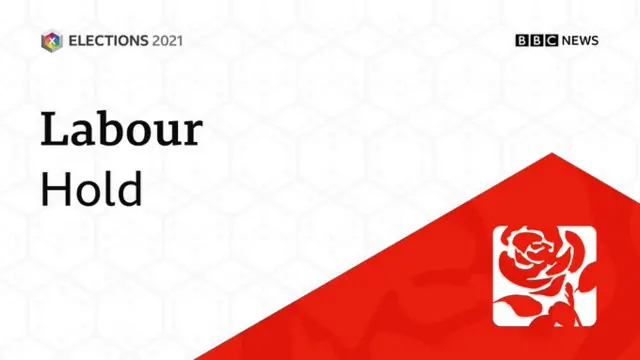
Mayor of Greater Manchester Andy Burnham has been re-elected with 67% of the vote.
Sadiq Khan is re-elected as London mayor with 55.2% of the vote
Labour deputy leader Angela Rayner is sacked as party chair and campaign co-ordinator, say Labour sources
The SNP wins its fourth term in power in Scotland but falls short of an overall majority
The Conservatives have gained 239 councillors across England, won control of 12 councils and held on to the West Midlands mayoralty
Labour also wins the mayoral elections in Greater Manchester, North Tyneside, the Liverpool City Region and West of England
Joseph Lee, Kate Whannel, Richard Morris and Mark McGregor

Mayor of Greater Manchester Andy Burnham has been re-elected with 67% of the vote.
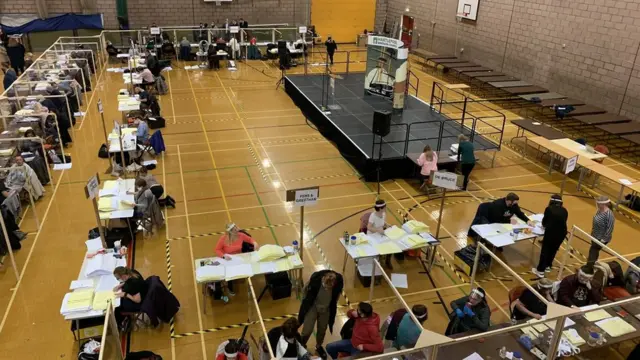 Image source, Hartlepool Council
Image source, Hartlepool CouncilFollowing their big by-election win in Hartlepool yesterday, the Conservatives have also won the most seats in the town's council elections.
But no party secured overall control.
Thirty-six seats were contested following a boundary review which saw three extra positions created.
The Conservatives won 13 with Labour taking 11.
Independents secured 10 with the remaining two going to the Independent Union.

 Professor Sir John Curtice
Professor Sir John Curtice
Polling expert
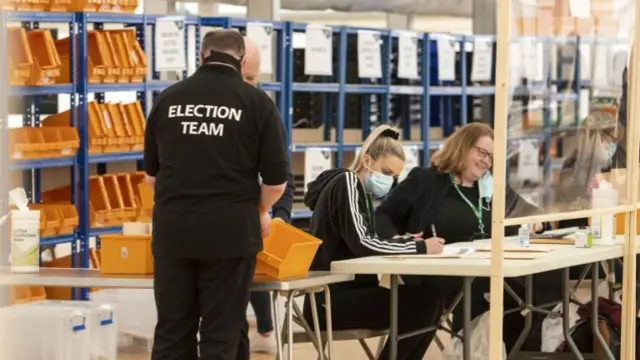 Image source, PA Media
Image source, PA MediaThe Conservatives have held on to the Galloway and West Dumfries seat, narrowing yet further the SNP's potential path to an overall majority in the Scottish Parliament.
But it doesn't put a complete barrier across it.
And the Galloway seat in south Scotland was always going to be a long shot for the SNP.
What matters now is whether the party will nevertheless still pick up a regional list seat.
The odds of that happening are probably less than 50%, but they're certainly still greater than zero.
We're really waiting for the result in Aberdeenshire West, which they do need to win now for that majority.
In the meantime, this isn't good news for the SNP, but it's not all over yet.
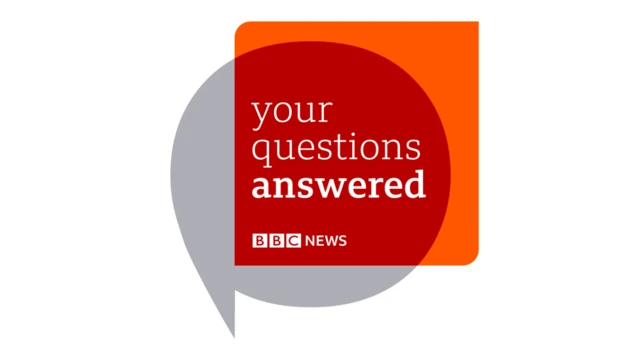
Thank you for your questions about the election results across England, Scotland and Wales.
There's still time to send them in. Our political correspondent Leila Nathoo, external will be here in a couple of hourse.
Click here - or use the link above - to send it to us, and we'll do our best to answer.
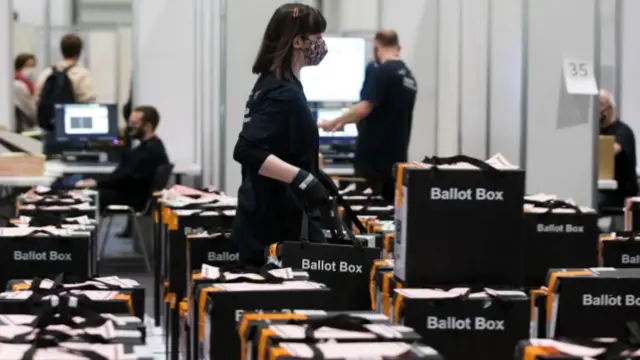 Image source, EPA
Image source, EPAA "confusing" ballot paper is being blamed for more than 56,000 rejected ballots in London's mayoral election.
With only half the votes counted, 56,358 first preference votes have been rejected - roughly 5% of the votes counted so far.
That's only about 500 short of the current record number of rejected ballots when about 3% were rejected in the contest of 2004.
So why might that be?
In London's mayoral election, each voter can choose first and second preference for mayor.
And of this year's rejected ballots so far, official figures show the vast majority of those - 47,091 - were rejected because too many votes were cast.
Professor Tony Travers, from the LSE department of government, says it's known from previous elections that many people find picking two preferences confusing.
Mary Harpley, who as Greater London's returning officer has been in charge of running the mayoral election, says she knows the system "can result in spoilt ballot papers".
But she says all Londoners were given an information booklet on how to vote.
Find the latest results in London here.
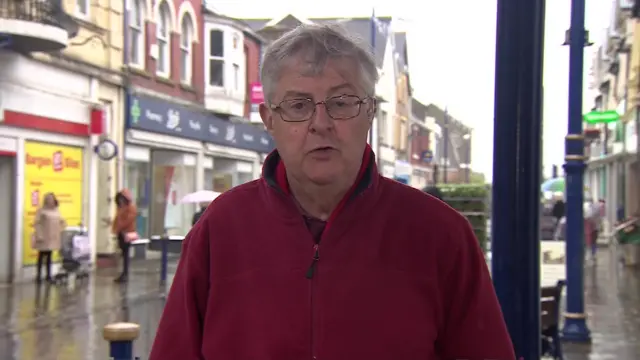
Labour's re-elected Welsh First Minister Mark Drakeford says from the first day of the campaign, people have said on the doorstep they are glad they live in Wales during the pandemic.
People in Wales are concerned about the pandemic and climate change, he says.
Coronavirus "has had a polarising effect on people's opinions" but he says he thinks the people of Wales still believe they are better off "being a part of a successful United Kingdom".
"We've got a record of delivery here in Wales," he says, adding he will aim for "continuity in terms of our handling of the pandemic," but "renewal as well".
Here are the first preferences in full:
As we explain below, Andy Street didn't quite reach the 50% vote share required to win in the first round, the contest now goes into a second round.
However, it looks like the Greens have had a successful result having improved on their 2017 performance when they came fifth behind the Liberal Democrats and UKIP.
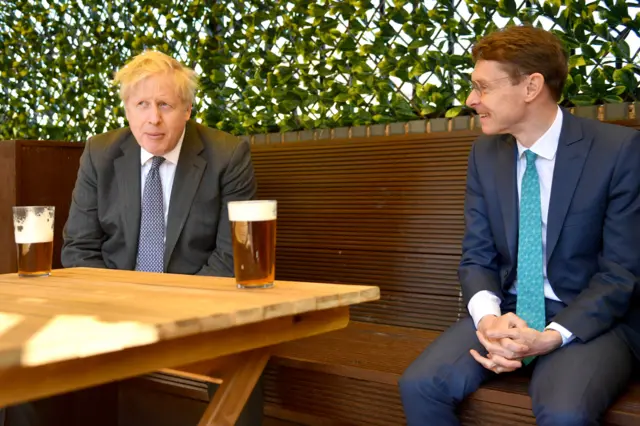
Prime Minister Boris Johnson shares a pint with Andy Street on the campaign trail
Conservative West Midlands Mayor Andy Street has just failed to secure enough votes to win in the first round.
Street got 299,318 votes - that is a 49% of the share of the vote - while Labour's Liam Byrne won 244,009.
The counters will now look at voters' second preferences to decide the winner.
Sir John Curtice says: "This is another disappointment for Labour, who in a year when the party was performing reasonably well would be expected to pick up this mayoralty.
"However, the Conservative lead of one point in 2017 has now stretched to a lead of nine points, with Andy Street only being just over a point short of the 50% mark."
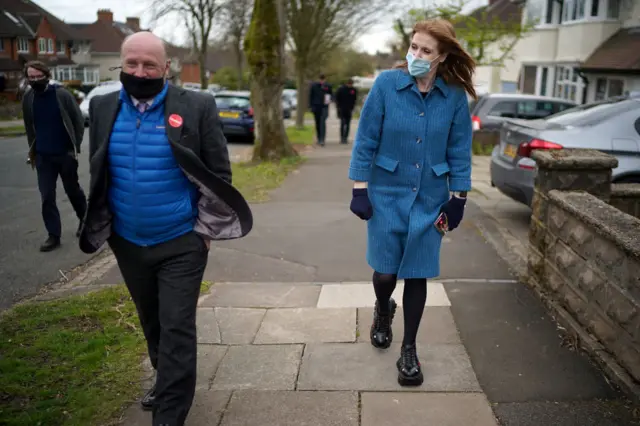 Image source, Getty Images
Image source, Getty ImagesLiam Byrne on a doorstep campaign with deputy Labour leader Angela Rayner

 James Vincent
James Vincent
Political Editor BBC Look North
Pretty incredible. I've never seen a party come from zero councillors to 20 in the space of one election.
The Conservative vote in Rotherham is one of the big stories of this election.
A couple of caveats. This wasn't a normal election. Yes, we know that, but in Rotherham it was different again.
The boundaries have been changed - there are now fewer councillors; 59 instead of 63.
But, there are more wards. So this was like a fresh election, which makes comparison hard.
The opposition before was mainly made up by the Rotherham Democratic Party. That's changed now.
Labour has fewer councillors than they did - but they still retain control.
The Conservatives now have a much stronger voice as the main opposition in the town hall.
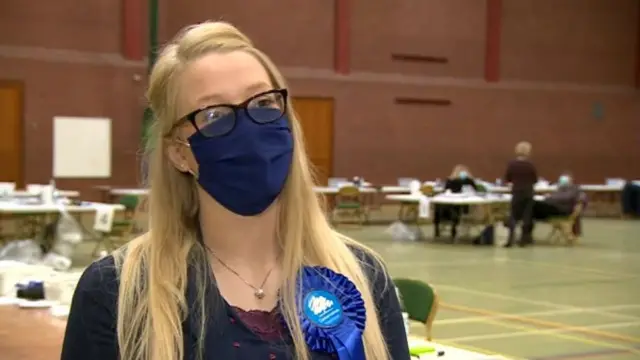
Tory Olivia Lyons now leads Cannock Chase District Council
The Conservatives have seen more success in the Midlands this afternoon, taking control of Cannock Chase District Council for the first time since it was created in 1974.
The party won 12 of the 13 seats up for contention, with the final seat going to an independent candidate.
The authority has had no overall control since 2019, when Labour lost the ruling majority.
Meanwhile, the Tories have also taken control of Worcester City Council, which also previously had no party in overall control, while Labour lost four seats.
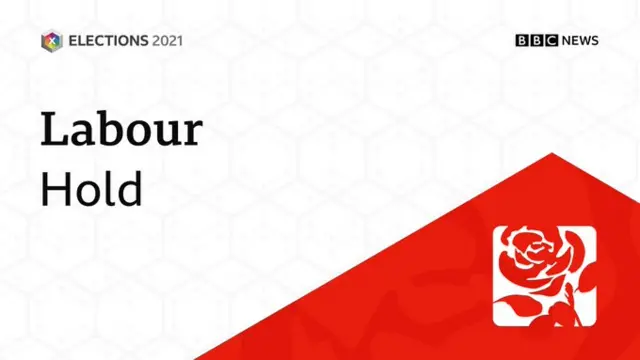
Labour's Paul Dennett has been re-elected as the mayor of Salford. with 59% of votes in the first round.
Speaking after the result, Dennett said he was "quite emotional" and declared: "We smashed it."
He said the party had "bucked the national trend" in Salford, by gaining seats on the council even in former Conservative strongholds.
They had achieved it by running a council that "puts people before profit" and builds an "economy designed for everyone’s benefit", pointing to developments such as Salford's MediaCityUK.
"The Labour Party’s brand in our city is still strong," he said, with the party still able to "reach people with a message of hope".
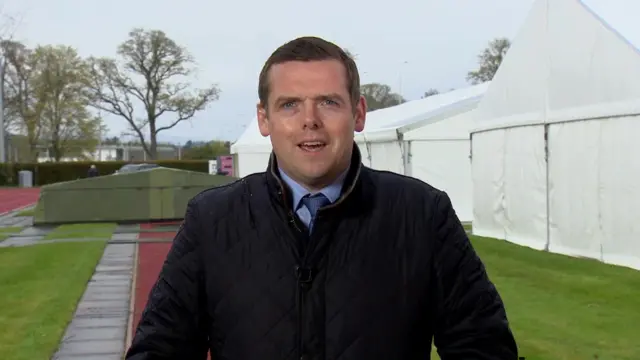
Scottish Conservative leader Douglas Ross has defended his campaign amid criticism that it was too focused on the issue of independence.
The SNP look set to be the largest party in the Scottish Parliament, although they may not win an overall majority.
Ross tells the BBC that he was also raising issues such as the success of the vaccine rollout and how the furlough scheme had helped to protect jobs in Scotland.
But he adds: "I also wasn’t going to shy away from or ignore the threat of another independence referendum give the SNP put that front and centre of their campaign.”
He argues that issues such as the economic recovery and drugs deaths can be "at the centre of what we do in Scottish politics... but that won’t happen if Nicola Sturgeon and the SNP yet again take their eye off the ball when they’re too focused on independence".

 Nick Eardley
Nick Eardley
Political correspondent
The next few hours will be a bit complicated in Scotland.
The voting system used is a form of proportional representation, split between 73 constituencies and 56 regional seats (eight regions of seven MSPs).
The constituencies are first-past-the-post – like Westminster - the candidate with the most votes wins the seat.
The regional seats are calculated using a formula. Every constituency seat a party wins, makes it even harder to win on the list.
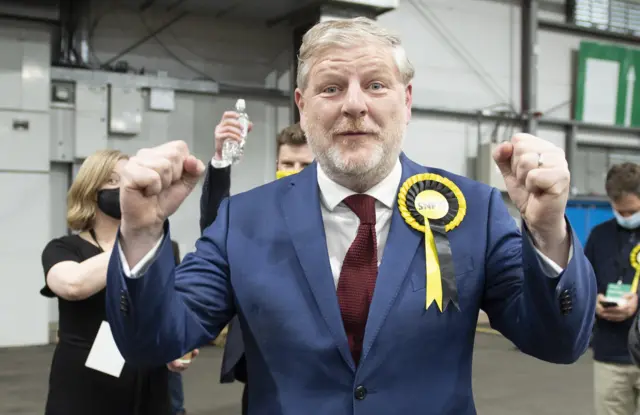 Image source, PA Media
Image source, PA MediaAngus Robertson's win in Edinburgh Central was a net gain for the SNP
So although the SNP picked up Ayr and East Lothian yesterday, that’s likely to have a knock on effect for their seats on the South of Scotland regional list.
Only Edinburgh Central so far has been a definite net gain – where there’s no impact on the regional list because the SNP don’t have any list MSPs there.
Still following?
The regional list is where the Conservatives and Labour pick up the vast majority of their seats. For the Greens, it’s the only place.
But because the SNP win so many constituencies, they win very few on the list.
Today is likely to push pro-independence MSPs well over 65 when the Greens results come in.
If the SNP are going to get that alone, they’ll need some list MSPs, probably two or three.
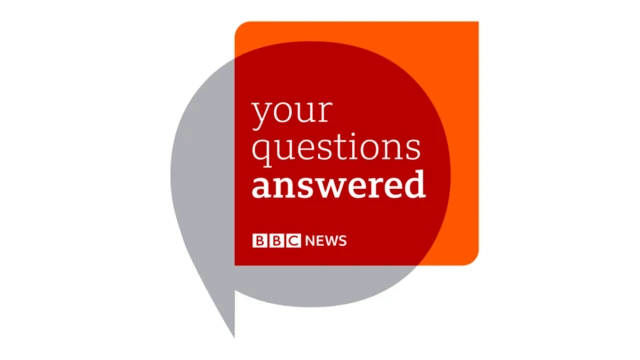
Do you have a question about the elections across England, Scotland and Wales?
As the results continue to come in, we want to answer the questions that matter most to our readers.
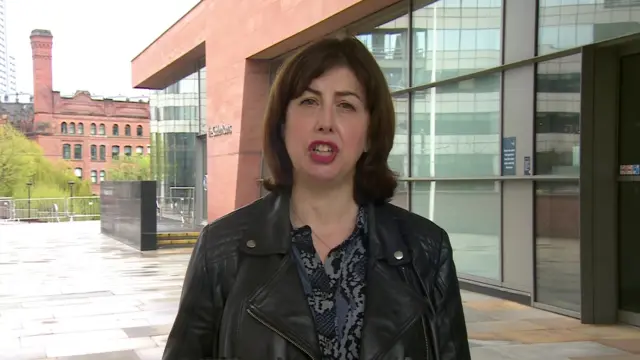
Labour shadow minister Lucy Powell told the BBC her party faces a tough road back to electoral relevance, saying "if it was easy we would have done it by now, this is a much more profound challenge that we face".
She says the party has been hurt by a Conservative prime minister with "tanks on our lawn" who is "superficially" offering change and solutions to the country's problems.
But she says she believes Labour "have the right values to change this country for the better".
Adrian Browne
BBC Wales political reporter
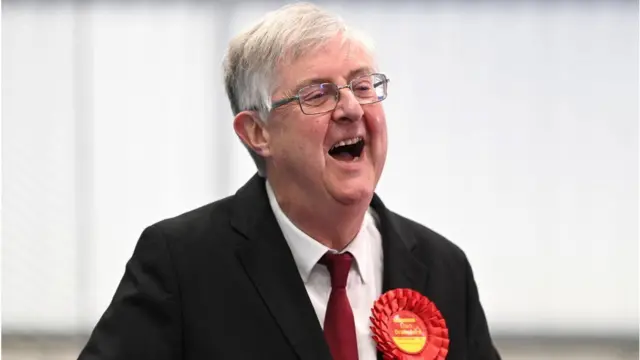 Image source, Getty Images
Image source, Getty ImagesAs we've just heard, Labour has matched its best-ever result in the Welsh Parliament, securing a sixth term of government.
But with Labour in England is licking its wounds, Welsh Labour appears to be living in a parallel universe.
Before the pandemic the prevailing wisdom was that Labour's Mark Drakeford would struggle against the charisma and passionate speech maker of Plaid Cymru leader Adam Price.
But then came the pandemic.
Suddenly the Welsh government had huge power over the lives of the three million people living in Wales.
It could decide when they could leave their homes, it was taking decisions every day that could result in thousands of lives being lost or saved.
And many people in Wales appreciated what's often been described as the careful, thoughtful, earnest approach that Mr Drakeford took to the challenge.
Suddenly, his perceived weaknesses became strengths, and a frightened population facing a national crisis thought, on the whole, the first minister had handled it pretty well.
Continue reading here.
It's been a good election for the Green Party in England, who have picked up 59 new councillors.
They've also had some success in the mayoral elections, increasing their share of the vote in every region they stood in and which has declared so far, except the Liverpool city poll.
Co-leader Jonathan Bartley also hailed a "Green surge" in London, where mayoral candidate Sian Berry has increased her share of the vote by 2% based on first preference votes counted so far.
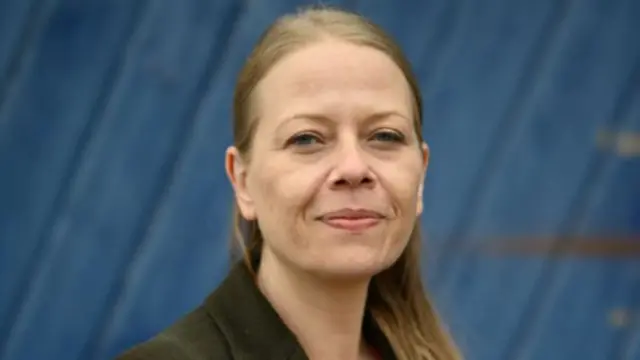 Image source, Getty Images
Image source, Getty ImagesSian Berry is the Green candidate for London mayor
In Wales, the final results are in, with Labour matching its best performance in the Welsh Parliament ever, taking 30 seats.
Labour will stay in power for another term with exactly half the overall seats in the Senedd.
The Conservatives, up five seats to a total of 16, have pipped Plaid Cymru to the post as the second largest party, with the latter on 13 seats - up one.
And the Lib Dems bring home one seat.
UKIP took seven seats last time - but has none now.
Here's how it breaks down:
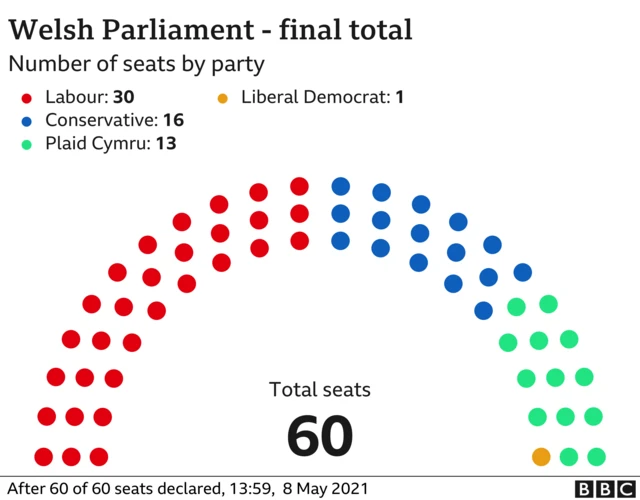
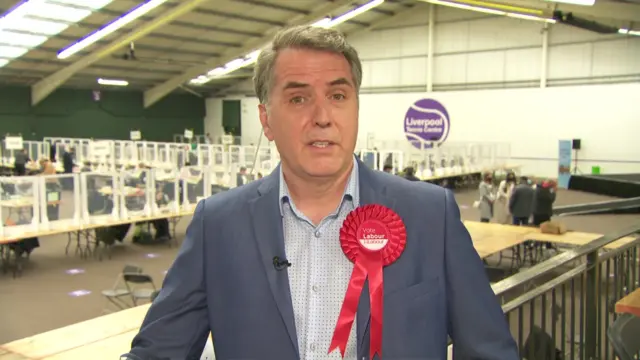
Newly re-elected Liverpool City Region mayor Steve Rotheram has told the BBC people on the doorsteps "aren't interested in the internal machinations of our party"
"We need to stop saying 'we're going to listen to people', we need to hear what the people are telling us, and then react on what they want", he said.
"People want hope for their children that they get a good education, and when they come out, that there will be a job, or training or an apprenticeship for them", he added.
He says his party nationally should push a message about the positives of devolution and use the party's metro mayors to show Labour policy in action, adding that he's demonstrated "socialism in practice" in Liverpool.
Labour's Norma Redfearn has won the mayoral race in North Tyneside.
The council has published the full results.
Allow X content?
This article contains content provided by X. We ask for your permission before anything is loaded, as they may be using cookies and other technologies. You may want to read X’s cookie policy, external and privacy policy, external before accepting. To view this content choose ‘accept and continue’.